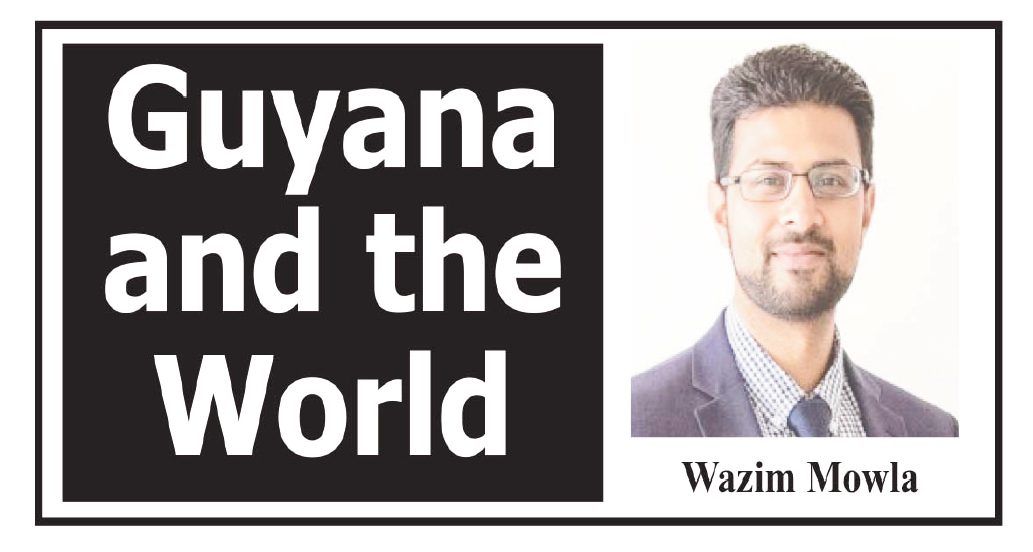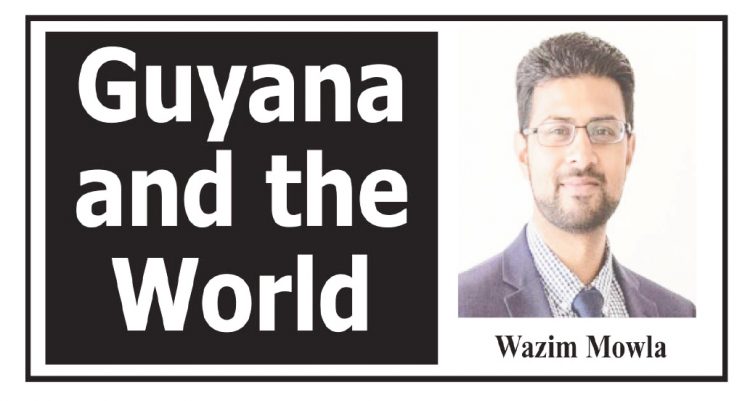Recently elected President of Brazil, Luiz Inácio Lula da Silva, was inaugurated earlier this week, which was attended by President Irfaan Ali as well as many leaders across Latin America and the Caribbean. President Lula’s third term in office is seen by some as a redefining moment for Brazil, a country that faced its fair share of criticism under former President Jair Bolsonaro. But his new term is also an opportunity for neighbours, like Guyana, to benefit from strengthening political and economic relations with Lula’s Brazil.
The potential for strong Guyana-Brazil relations has always existed. As bordering neighbours, it is natural for these countries to have close political, economic, and social relations. However, whether it has been limited political will or little economic incentives on either side, the longstanding potential that exists is yet to be fully realized. For years, there have been discussions between both countries (with Suriname) about establishing an electricity corridor and new trade routes, but little has materialized.
But now, the moment appears ripe with a willingness from both governments to increase cooperation. Lula is a pragmatic leader. He comes to office amid multiple global economic challenges, a society highly polarized, and a right-leaning Congress that is expected to directly challenge some of his policies. For any new leader potentially facing pressure at home, delivering relatively quick wins is essential to maintaining power. Guyana’s significant economic growth, even in non-oil related industries, can be a cost-effective market for Brazilian companies and the government to partner with in areas, such as the agricultural sector, electrification in rural communities, and domestic food production. For Guyana, its economic boom has closed some of the gaps of power that exist with Brazil, effectively leveling the playing field between the two. For any potential forthcoming agreements, Brazil would not have the upper hand.
Further, as Guyanese businesses look for new markets for export, many of them can be found in Brazil. Currently, Guyana’s main export to Brazil is rice. But with a country population upwards of 200 million, each state in Brazil houses potential new consumers for other Guyanese products. Here, Guyana’s private sector would benefit the most. As global economic growth continues to slow, supply chains are likely to shorten again. Therefore, exporting to markets close by, particularly those that do not incur high shipping costs, can become a lifeline for Guyanese small and medium-sized enterprises.
Beyond deepening trade, Guyana and Brazil can partner on anchoring energy security and production in Latin America and the Caribbean. This year, Guyana and Brazil are estimated to add 850,000 barrels of oil per day to overall production in the region. Both countries house the potential to work together to export fossil fuels at a low cost to their neighbours, especially those in the Caribbean that are import-dependent on fossil fuels. Outside of the oil and gas industry, Brazil has significant expertise in the renewable energy space – a key feature of Guyana’s Low Carbon Development Strategy. Presently, Brazil houses the Itaipú Dam, which is the largest hydroelectric asset in the world that is currently operationalized. Guyana’s government’s ambition to build and bring online the Amalia Falls hydropower project can potentially benefit from Brazilian companies and technicians with decades of experience in this space.
While both countries are oil producers, they are also in a unique space to lead on climate issues and reducing carbon emissions. 87% of Guyana land is covered by rainforests with 61% for Brazil. Recently, Guyana has formally established itself as a leader in the climate space by being the first country to sell carbon credits in a deal to Hess Corporation worth US $750 million. However, to be a true regional and global leader in this space, Guyana should consider working with Brazil to expand the current carbon market. Brazil’s Amazon is often considered the ‘lungs of the world.’ Fortunately, protecting the Amazon is a priority for President Lula, meaning that the appetite for Guyana to transfer knowledge to Brazil on carbon credits’ deals should increase. In the years to come, as pressure for companies to reduce carbon emissions rises, a regional monopoly on carbon markets for Guyana and Brazil can bring more carbon credits’ deals similar to the one with Hess.
But what benefits does strengthening relations with Brazil bring for Guyana? For one, Brazil is a natural gateway into Latin America and working hand-in-hand with Lula can help catapult Guyana into leadership positions among the region and potentially other global players. In the past, Brazil has managed to translate its economic prowess into political leadership, even in informal avenues. Guyana’s economy means that it is potentially on the brink of doing so as well. Building regional blocs or being more active in current regional groupings is a natural step Guyana will be ready to take in the next few years. Working with Brazil and championing issues collectively can help elevate Guyana to these new heights.
Second, as a bordering neighbour, working with Brazil is critical to Guyana’s national security. The border is often plagued by illegal mining, drug trafficking, and deforestation by transnational criminal organizations that benefit from the cover provided by the dense terrain. Increased cooperation with Brazilian authorities via intelligence sharing, remote imagery, and force deployments can help deter criminal operations and monitor border activities.
The benefits of working closer with Brazil are growing. And there has not been a better time to strengthen relations than now. With Lula in office, Guyana can finally capitalize on the economic, political, and security potential that has long existed between both neighbours.
*Wazim Mowla is the Associate Director and lead of the Caribbean Initiative at the Atlantic Council’s Adrienne Arsht Latin America Center and an Associate of ACE Consultancy.







